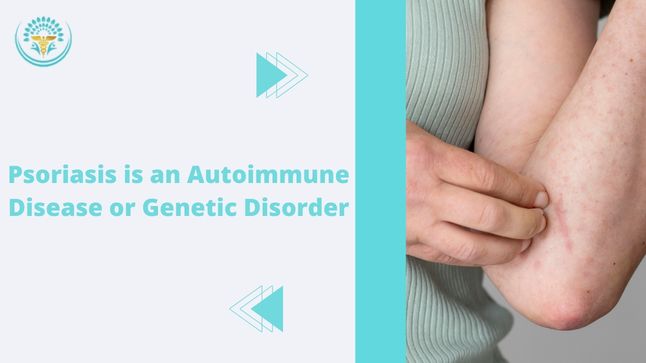Is Psoriasis An Autoimmune Disorder or Genetic Disorder
Is Psoriasis an Autoimmune Disorder or Genetic Disorder? Psoriasis is a skin disease that can affect people of any race, with a prevalence of about 2-3% in the general population. It occurs across all age groups and both sexes, though it is slightly more common in females. This chronic condition is influenced by both genetic and autoimmune factors, making it essential to understand its root causes. For those seeking specialized care, the best homeopathic doctor for psoriasis at Provitale Health offers holistic treatment to manage symptoms and provide lasting relief.
Having said that, is there any cure for this chronic disease—psoriasis? The answer is yes; that is the case with any disorder at Provitale Health, where you get the best homeopathy doctors. Depending on the degree of response to treatment, the duration varies.
Autoimmune disorders occur when the immune system mistakenly attacks the body’s own tissues. In psoriasis, this causes skin cells to multiply up to 10 times faster than normal, leading to red, scaly patches. While genetics play a role, psoriasis doesn’t always appear in every generation. It commonly affects the scalp, limb flexures, and lower back but can develop anywhere on the body.
Though the exact cause is unclear, psoriasis results from genetic and environmental factors, including stress and infections like strep throat. If you’re seeking relief, consulting the best homeopathic doctor for psoriasis can help with effective treatment options.
Symptoms
The symptoms of psoriasis differ with the type of psoriasis you are suffering from. Some common symptoms of plaque psoriasis — the most common variety among the various types of the condition — include:
Psoriasis Plaques of red skin, usually covered with silver-coloured scales which may be itchy and painful, and when scratched, they sometimes crack and even bleed. Depending on the intensity, the plaques will grow and merge, covering large skin areas, if not treated.
Disorders of the fingernails and toenails are also not uncommon, including discolouration and pitting of the nails that can eventually crumble or detach from the underlying nail bed.
Scalp psoriasis is with Plaques of scales or crust with itching.
Around 10-30% of people with psoriasis can develop psoriatic arthritis a type of arthritis that causes pain and swelling in the joints, especially the small joints.
Causes
No one knows the aetiology of psoriasis, but experts believe that it’s not limited to one factor, there is a combination of things. Any abnormality in the immune system causes inflammation, skin cells multiply at a rapid pace. Skin cells are replaced every 10 to 30 days without us noticing. However, with psoriasis, the growth of cells in the Skin is much shorter – every 3 to 4 days. When old cells are replaced by new ones the older cells create those silver scales with dead cells.
Psoriasis tends to run in the genetic material, but it may skip generations ie dormant.
Treatment
Treatment is aimed at reducing the growth of new skin cells or relieving itching and dry skin. Based on the size of your rash, where it is on your body, your age, your overall health, and other things, your doctor will select a treatment plan that is right for you.
Conclusion
Psoriasis, a skin disorder can manifest at any age. There are multiple factors triggering genes that are other-wise dormant. Some abnormality in genes turns the immune cells to act against the host resulting in Psoriasis. Due this nature, psoriasis is a genetic autoimmune disorder. There is safe treatment at &</strong>amp;</strong>lt;</strong>a href=”https://provitalehealth.com/”>Provitale Health which is effective and free from side-effects.

